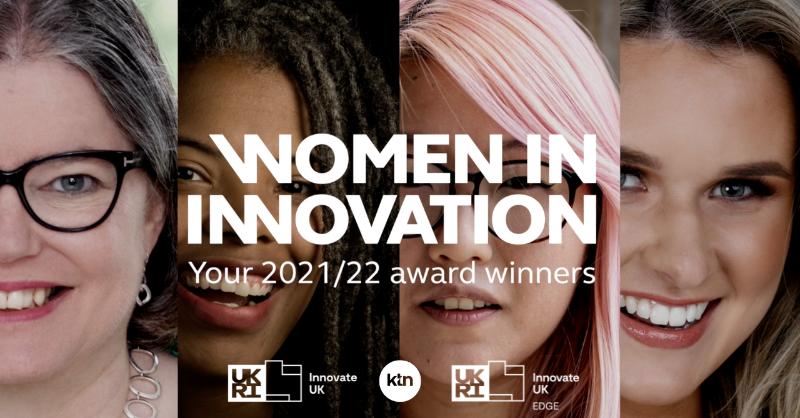Three female founders from Northern Ireland have been recognised in this year’s Innovate UK Women in Innovation Awards. These awards are for female entrepreneurs across the UK and the overall aim is to find more women with ambitious plans and excellent ideas innovating within UK businesses, to promote greater diversity and inclusion in business innovation. Each winner receives £50k funding and a support package.
Shannon Beattie
GenoME Diagnostics
Shannon Beattie’s life was touched at a young age by the cancer diagnosis of a close family member. It was the catalyst that drove her to a career in patient-focused cancer research. After finishing her PhD in breast cancer research, she joined the ovarian cancer research project in the Patrick G Johnston Centre at Queen’s University Belfast through the Innovation to Commercialisation of University Research (ICURe) programme, which led Shannon to becoming Chief Operating Officer at GenoME Diagnostics.
Built on a decade of scientific research, GenoME Diagnostics are developing OvaME – a potential novel blood test for earlier and more accurate detection of ovarian cancer.
Shannon said: “The OvaME blood test aims to provide earlier and more accurate detection of High Grade Serous Carcinoma, the most common and aggressive form of ovarian cancer, accounting for over 70% of cases. Better detection of this ‘Silent Killer’ could make a significant difference in helping to save the lives of women with ovarian cancer.
“This Women in Innovation project will be used to analyse our patented novel biomarkers to assess their potential use in detecting all types of ovarian cancer. It is also a great platform to highlight the amazing work done by other women in STEM and in Northern Ireland.”
Naomi McGregor
Movetru
As an aspiring ballet dancer at 14 years old, Naomi McGregor injured her knee and was told she would never dance again. She channelled her devastating prognosis into a cutting-edge innovation designed to treat elite sports men and women suffering life-altering injuries, with advanced rehabilitation technology to get them back on their feet.
Movetru is wearable technology containing sensors which accurately track the user’s movement. It is the home physio for anyone, anytime, anywhere. Its technology transmits 3D motion to a user’s smartphone to provide them with in-depth analysis from industry professionals. The user is then provided with recommendations specific to their needs to improve performance.
Naomi said: “With my passion for dance, frustration of injury, and background in engineering, I put my specialist knowledge and revolutionary concept forward to create Movetru. It provides a full-body reboot, coupled with individualised information to optimise performance, reduce injuries, and expedite injury recovery.
“We hope that Movetru will revolutionise healthcare for all. The Women in Innovation programme will help to elevate my business and solidify my message that women shouldn’t be restricted into one box.”
Dr Roisin Molloy
TriMedika Ltd
Biochemist Dr Roisin Molloy is CEO and co-founder of TriMedika™, an innovative medical technology manufacturer, supplying the most accurate clinical non-contact thermometer to hospitals worldwide. The TRITEMP non-contact thermometer device is being developed so that it electronically captures and time stamps accurate patient temperature, alongside patient details, with the information being automatically uploaded to a hospital Electronic Medical Records (EMR) database.
This innovation is aimed at improving, capturing and documentation of temperature measurement, making a nurse’s time more efficient and minimising the risk of cross-infection, with a non-contact, plastic-free, environmentally-friendly solution. The handheld device will communicate its patient data through one of a number of forms of wireless communication, to the hospital EMR.
Dr Molloy said: “I am passionate about our mission: ‘To put patient care at the centre of medical innovation.’
“Most hospital thermometers use plastic covers as they need to touch the patient, touch increases the risk of infection and plastic covers increase costs and waste for disposal.”
“We want to take plastic out of our hospitals to improve patient care, reduce costs and protect the environment.”

